Lorraine Perlman
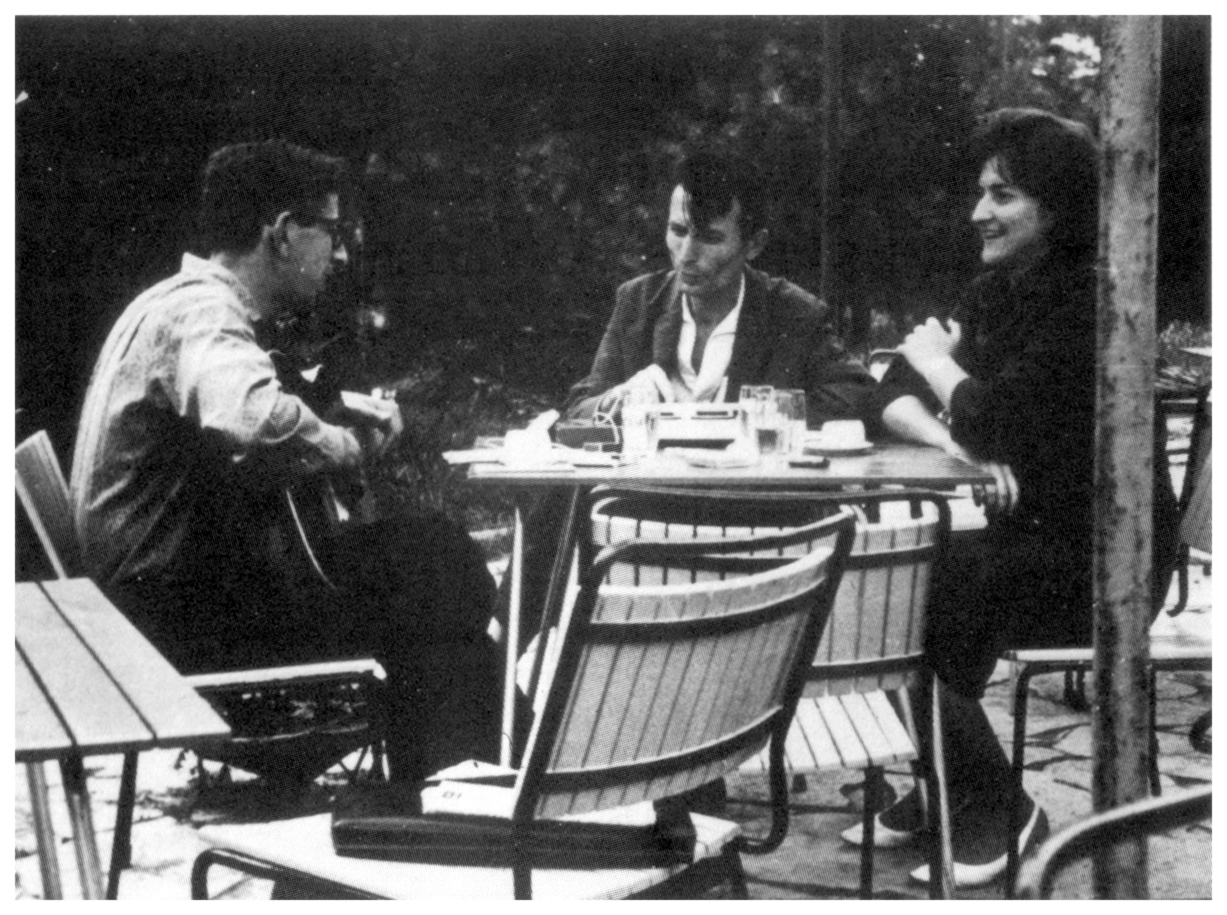
Fredy Perlman, Velimir Morača and an unknown friend, Belgrade, 1964. or 1965.
The warm welcome we received from numerous Yugoslavs in September 1963 made our move to Belgrade definitive. Within a few days we had found a room in the home of a bus driver and family on the outskirts of Zemun, a large suburb and extension of Belgrade on the other side of the Sava River. Fredy was hired for a temporary job as “speaker” by a media enterprise which made documentary films about tourist attractions in Yugoslavia. Fredy recorded the texts describing the sites depicted in the films: parks featuring post-war sculpture, monasteries, or coastal villages. For a few hours’ work, he received the equivalent of U.S. wages and this money solved our immediate financial problems.
We enrolled at a language institute and spent every morning attending classes and listening to tapes of Serbo-Croatian. Our fellow students were from central Africa, Western Europe and the U.S.S.R. It was a friendly group and sometimes we got together outside of class. One of the two Soviet students was eager to meet for discussions but it was clear that the other disapproved of this extracurricular contact. We were shocked by Viktor’s suspicious reserve and perhaps did not sufficiently appreciate Dimitri’s courage in coming to visit us on his own.
The Yugoslav innovation of worker self-management was highly regarded in the West and we wanted to get acquainted with its principles and operation. Zemun had a number of factories and we had no trouble finding informed people to answer our questions. We quickly learned that Yugoslavs did not share the Western enthusiasm for worker self-management, considering it largely a public relations gimmick to camouflage conventional worker-vs.-management relations. We were surprised to learn that strikes were frequent. Although never reported in the press, the occurrence of this authentic worker-managed activity was common knowledge. Unions are an arm of the government (the “boss”) so any strike in Yugoslavia necessarily occurs outside an institutional framework.
Even though we lived in their Zemun home for only two months, the Katić family introduced us to many Yugoslav customs and perspectives. The house was one of four or five units around a courtyard. Its design clearly originated in Serbian villages. There were no chickens in our courtyard, but we heard them in nearby enclosures. One outhouse served all the residents. As we had done in Paris, we went te public baths once or twice a week for showers.
When we moved into our room at the Katić’s, our language skills in Serbian were almost none-existent. One of the neighbors, a toothless elderly man, took it upon himself to help us with vocabulary whenever he saw us; he would point to an object and name it. He taught us the numbers and was pleased with our progress. Unfortunately, the version of a word we learned from our toothless friend did not always correspond to the conventional pronunciation.
In addition to our language deficiencies, our working class hosts considered us backward in culinary skills. Local stores were quite unlike Danish and French ones and we sometimes were hard put to find ingredients for meals we knew how to prepare. We didn’t know to ask for meat in a butcher shop and were unfamiliar with outdoor markets, where most people in Zemun shopped. One day when we opened a can (of tuna, maybe), the entire Katić family stood around the table and watched. (The can opener was part of our camping gear; such a gadget would not have been found in their kitchen.) It wasn’t that they had never seen canned goods, but they scorned unfresh food which came preserved in metal; nevertheless they were curious to see what emerged from the container and if we would eat it without further preparation. Once we became official students at the language institute we usually ate at student restaurants in Belgrade where we had a copious, if not a gourmet, midday meal.
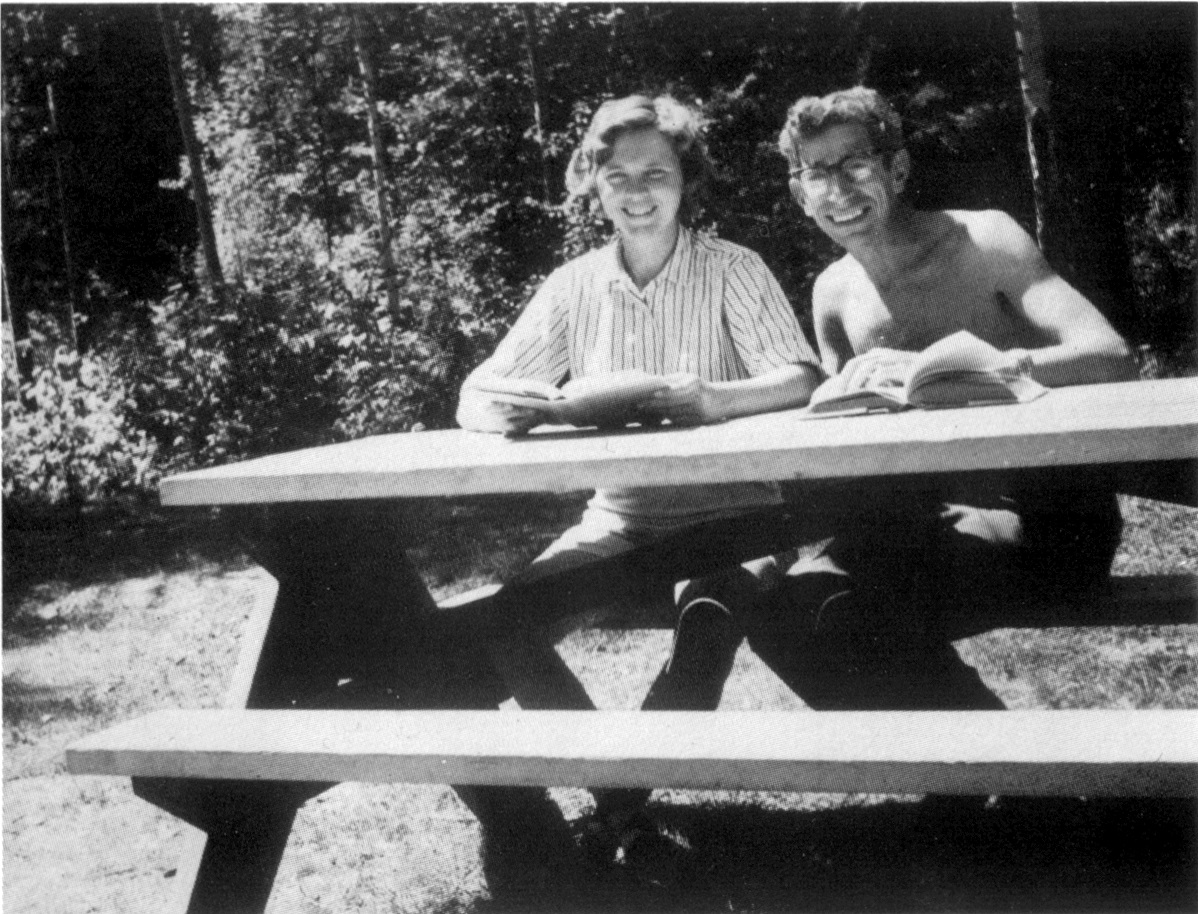
Lorraine and Fredy Perlman, 1967.
During our three-year stay in Yugoslavia we ate extremely well. We found most of the Yugoslav dishes delicious. Two memorable meals were with the Katić family. One was on a Sunday in late September soon after our arrival. Mr. Katić had made it clear that we were invited to eat with them but we didn’t know what the occasion was. We put on our Sunday clothes and waited. In late morning a 1arge pig and a butcher arrived, and the afternoon was spent cutting up the carcass. A number of people took part — none of them wore Sunday clothes. They rendered lard, washed intestines for sausage casings, prepared the hams for smoking. In late afternoon we all sat down to a feast where pork liver was the principal dish.
Another Sunday we accompanied the Katić family and many of their friends and relatives to a wedding in a village about 75 miles from Zemun. Mr. Katić arranged for the use of a city bus of which he, naturally, was the driver. I can’t remember if it was mechanical failure of the bus or if the road was in bad condition, but at one point the twenty or so wedding guests were obliged to get out of the bus and climb the hill; the men pushed the bus to the summit.
The wedding celebration consisted of eating, dancing and drinking. The ceremony itself must have preceded or followed the afternoon events. We ate outside, at long tables; roast pig — the highlight of the meal — was prepared over an open fire. Fredy, who never liked meat, was more appreciative of the gibanica (a pasta and cheese dish) and other delicacies than of the roast pork.
Music was provided by local musicians who, as the festivities continued, received generous donations, usually in the form of bills which were affixed to their foreheads (and which sweat kept there until the end of the piece). The dances were line dances and men, women and children of all ages took part, even Fredy and I. The elderly executed every step and turn, but in miniature, so to speak. They hardly raised their foot off the ground, twisted their torso only slightly, reserving their strength. But the rhythm was flawless and every nuance observed. We had been told that dances give an opportunity for young women to display their endurance and for village bachelors to judge the vigor of potential brides. I hope the dances served a less crass function, but, it’s true, the bride (although already chosen) danced exuberantly from beginning to end. And she was not the only unflagging woman dancer among the celebrants.
In Belgrade, young people had other, less exhausting, criteria when seeking a spouse. Getting acquainted often took place in a well-defined downtown area during the afternoon promenade. On a street (closed to vehicles) leading from Terazije to Kalemegdan Park, one saw crowds of people every afternoon.
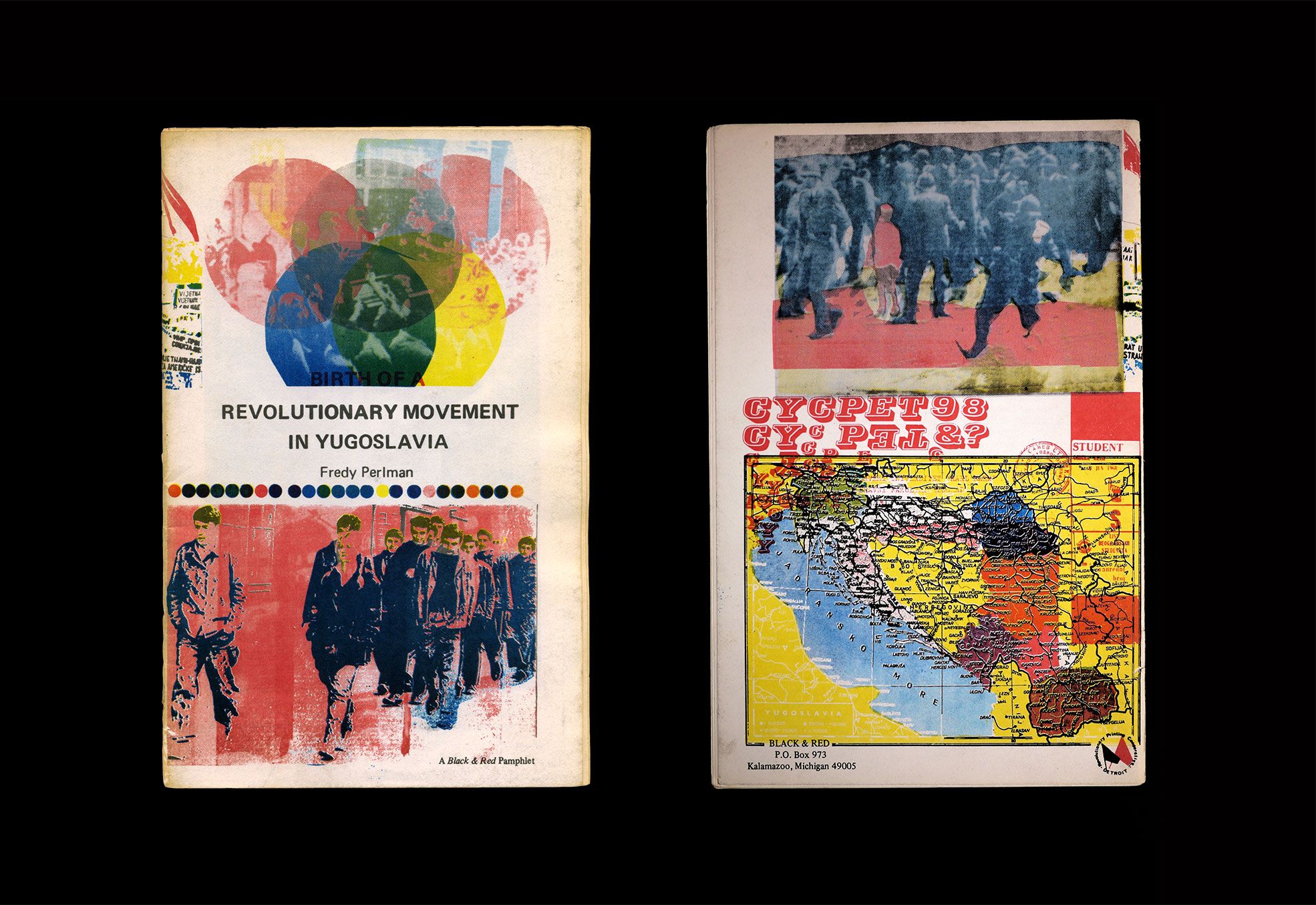
At all hours of the day there were also crowds of people at the train station — most of them were coming to the city to live. Fredy observed that we were seeing the migration from the countryside to the city. Zemun was hardly the countryside, but in November we joined the influx to Belgrade, taking a room in an apartment with modern conveniences. Fredy enrolled as a graduate student at the Economics Faculty and I found two jobs in music — one playing, one teaching.
It was our responsibility to secure a visa; since our situation had few precedents, various authorities quoted widely divergent rules. The bureaucrat in one office assured us we had to return to the United States and apply for a visa from there. After trying to communicate the absurdity of this proposal, we left and continued our search at another office which, conveniently, was nearby. Here we were immediately given one-year visas. We wondered if this was the Yugoslav self-managed economy at work.
Most of our Yugoslav friends and associates had been born and raised in Belgrade, but almost all of them had relatives who still lived in villages. The rural ties were part of our friends’ self-definition. Fredy and I were often invited to go with them to visit their parents, grandparents or aunts and uncles. In the course of numerous visits, we traveled to villages that had no roads connecting them; we had a view of Spring as a season of mud; we slept on straw mattresses and helped shell corn by hand. The meals served us were always delicious (sometimes an animal was slaughtered in honor of our visit). It was obvious that our peasant hosts worked long hours doing by hand heavy tasks that a machine could accomplish in a fraction of the time, and it puzzled us that there was not more interest in labor-saving techniques. Though acknowledging that both men and women took great pride in their work, Fredy judged peasant life to be difficult and unrewarding.
As a student of economics, concerned with flow charts which showed the transfer of goods on a national level, Fredy had a patronizing view of the average peasant’s undertaking. The efforts they expended and the time it took (which they never “counted”) to bring their products to city markets made him scornful of their form of distribution and exchange. We were not well informed about collectivization efforts, but when he saw peasants hoeing in the long “ribbon” fields on which tractors would have been very efficient, Fredy felt justified in criticizing the peasants’ reluctance to relinquish control over their private plots.
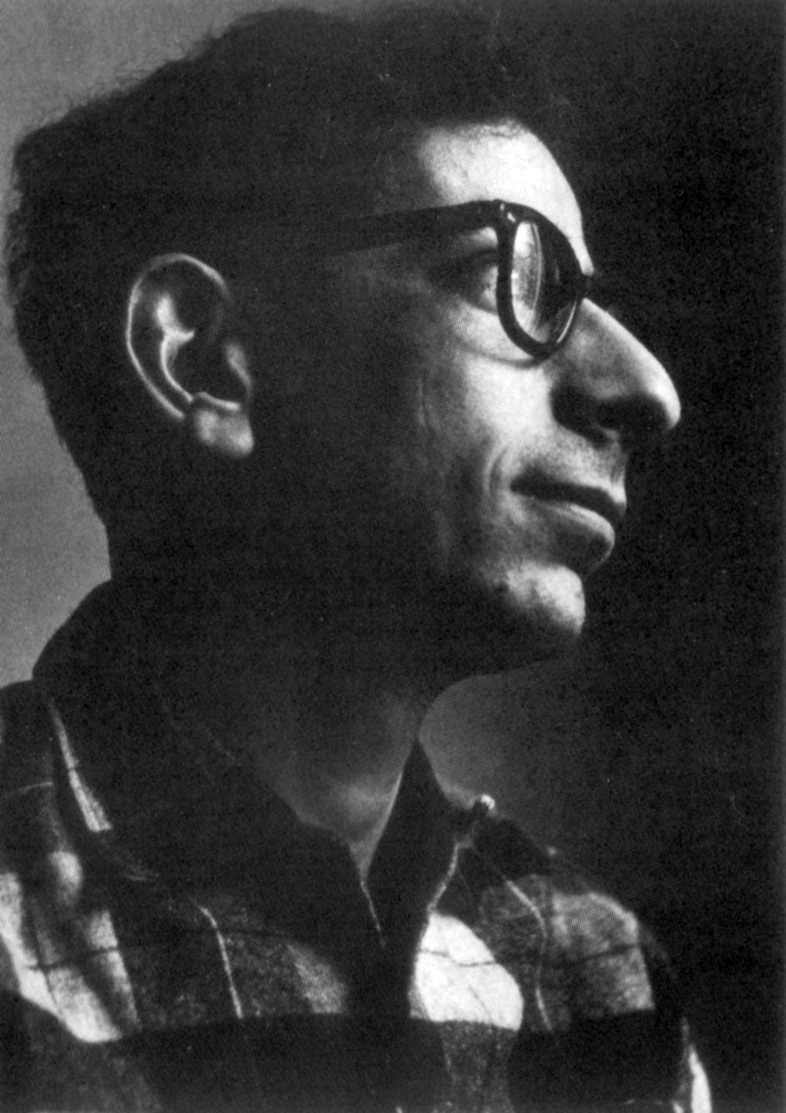
His later studies of Kosovo and Metohija (Kosmet) softened this view somewhat and he became more sympathetic to peasants who resisted plans imposed by bureaucrats. In the summer of 1965, Fredy went with a friend and fellow student, Velimir Morača, to visit the latter’s family and village in Montenegro. His stay there impressed him. First because of the isolation: the walk from the train station was ten miles uphill. Then by the self-sufficiency of these peasant-herders: the only thing they bought was salt. Finally, by the fierce independence: Morača’s uncle refused to use a plate when eating, even though there were guests from the city. Fredy quoted this man’s vigorous rejection of modern utensils: “Horse shit! What do I need a goddam fucking plate for?”
Urban Yugoslavs, too, were free with their criticisms, although they generally were not too specific, at least in public, when it came to government policies and individuals. Dissidents ran a very real risk of becoming political prisoners. Morača, who became close friends with Fredy, had spent eight years in jail because of his beliefs. People often explained to us that backwardness and social problems were due to “the three hundred years the Serbs lived under the Turkish yoke.” Another semi-serious explanation for the county’s difficulties was presented in the form of a frequently quoted joke: Question: “Who invented scientific socialism?” Response: “Marx and Engels.” Comment: “Shouldn’t they have tried it on rats first?” Newspapers rarely attacked official policies but did criticize certain aspects of them and often printed indignant letters from readers. At the theater we heard more profound, albeit more abstract, critiques. Few of our Yugoslav acquaintances hesitated to criticize the government, but all were wary of the authorities’ power.
Fredy’s only critique which reached the mass media was a letter he wrote to the Belgrade papers expressing his indignation at finding a nail in a package of dry soup mix. By then he was familiar with the conventional clichés used to praise Yugoslav socialism and he used them to good effect.
Neither Turkish occupation nor socialism were cited as sources for Yugoslav notions of male supremacy; it presumably had more indigenous roots. Fredy, always sensitive to the practice and verbalization of discrimination, observed that although Yugoslav men vigorously defended male prerogatives, they accepted a large share of domestic responsibility, especially if they had a wife who worked outside the home. Fredy pointed out this gap between principles and practice to some of his male friends. They explained that the situation in their home was different, that their wife needed assistance, still insisting that the tasks of marketing, child-rearing, cooking and cleaning really were a woman’s obligation. A few years later, in texts written in Kalamazoo, Fredy examined other gaps between ideology and practice. One of these was the example of workers who, while verbally denouncing rebellious actions in one breath, take drastic, vigorous steps to protect their own interests in the next. Another example furnished a theme that remained central to all his later writings (in this case, admirable principles are belied by reprehensible practice): the political agitator whose goal is freedom, but who, once in power (and sometimes even before), justifies coercion in the name of a higher good.
Before the end of his first year in Belgrade, Fredy already spoke fluent Serbian and was able to read the textbooks for his classes. In the two subsequent years he learned to speak even better, although never without grammatical faults. People from certain regions in Yugoslavia ignore rules of declension, and new acquaintances often assumed that Fredy was from one of those regions.
To each other we spoke English, however, and some of our friends were English-speaking. Once or twice a month we read plays with John Ricklefs, Paul Pignon (who worked in Belgrade as a technical translator and who composed music when not working), Paul’s wife Jasna and an Australian woman (who was spending a year in Belgrade to get acquainted with the country her parents had left). We had many opportunities to attend excellent concerts of world-famous artists (Kogan, Richter, Ricci) and Fredy heard many of the opera performances in which I participated as an orchestra violinist. One of Fredy’s undertakings which remained unfinished was a translation into English of a history of Serbia. He worked on this project with a friend; I think that too much time of the weekly sessions was spent on eating and discussing and too little on translating. Between 1963 and 1966, we did some traveling outside Yugoslavia. In the summer of 1964, we spent five weeks in Italy, visiting Venice, Ravenna, Rome, Naples and Florence. In 1965 when the Belgrade Opera made a tour of East Germany, Fredy traveled with the company; we spent a week in both East Berlin and Leipzig. He and I made independent visits, mostly short, to Budapest, Sofia and Bucharest. In the summer of 1965 when I went to the U.S., Fredy traveled in Yugoslavia; in Sarajevo he had a brief reunion with Living Theatre friends (who were performing throughout Europe that year). He also went to Paris to renew friendships there.
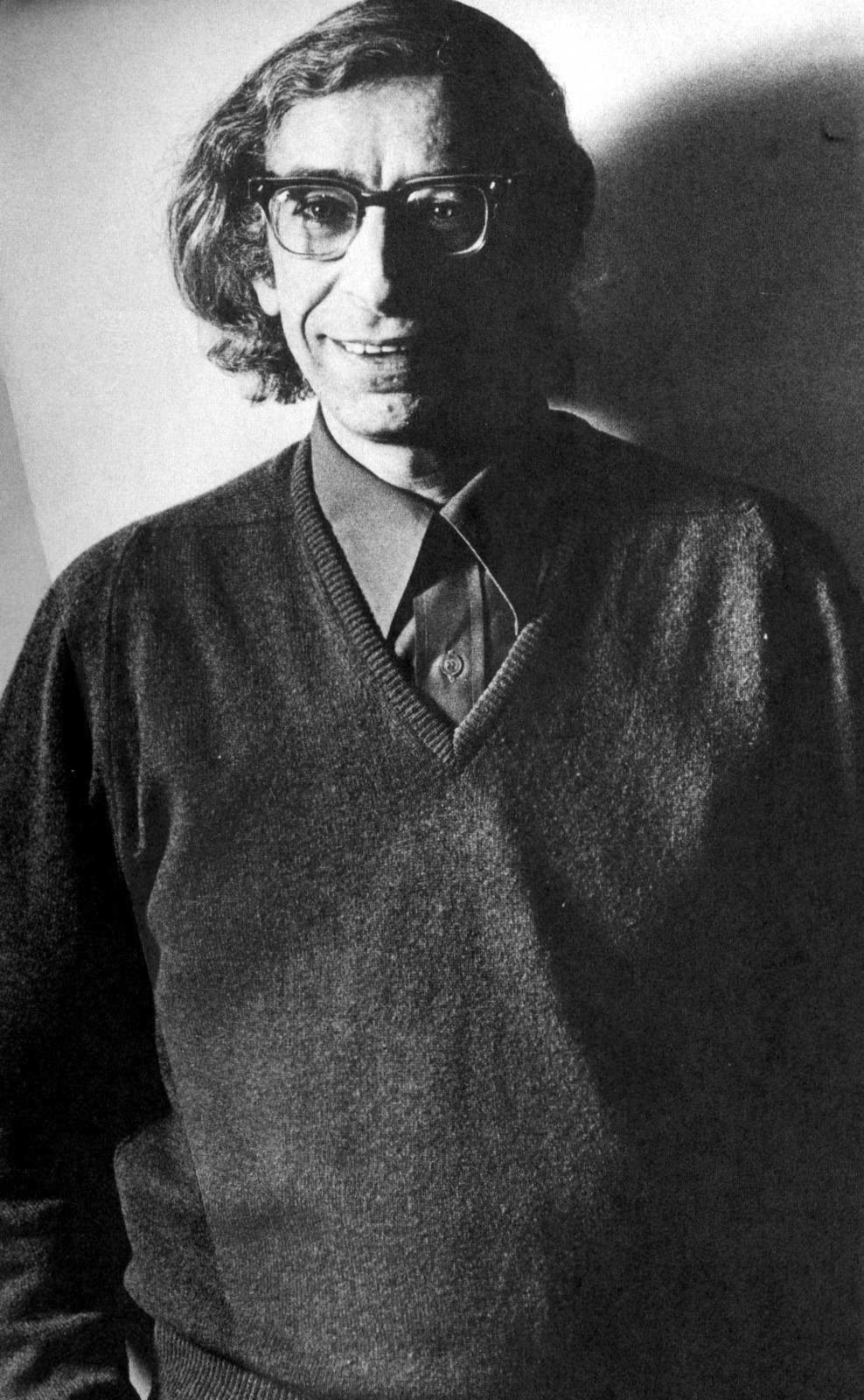
For most of the stay in Belgrade, Fredy devoted himself to his studies and was a conscientious student. At the Economics Faculty at least two of his professors were high in governmental circles. One was president the national bank; he came to class in a chauffeur-driven Mercedes. The other was the wife of the country’s vice-president. Both professors appear in Letters of Insurgents.
In his first year of study, Fredy took courses which presented Marxist principles of economic analysis and which used this analysis to study the Yugoslav economy. In the second year the courses were more specialized. Two foreign professors came to lecture: one, a Hungarian mathematician, taught the students how to construct and use input-output matrices; the other, a Soviet economist, discussed the latest management techniques. The textbooks for both classes were by U.S. academics.
Fredy’s master’s thesis, “The Structure of Backwardness,” which he completed in the spring of 1965 was a statistical-economic analysis of certain factors in a number of countries at various levels of industrial development. He used flow charts to study consumption, exports and reinvestment in five basic sectors. In no way does this work foreshadow Fredy’s later, critical, views on industrialization. One of its assumptions is “that a developed economy is a backward economy’s image of the future… There may be various ‘roads to socialism,’ but there is only one road to industrialization: it is a broad highway which may be followed in the freshness of April or the heat of August; one may walk it, ride a horse or go by bulldozer; if he cannot follow it he will not get where it leads” (page 97). The destination itself goes unquestioned in this work.
The panel of professors to whom he presented his thesis was satisfied with its quality even though, at the public defense, some of them quibbled about certain of Fredy’s observations about Yugoslavia. The academic panel’s chief, wife of the country’s vice-president, commented on Comrade Perlman’s remarkable fluency in Serbian.
Fredy found the bland, “official” analyses offered by the Economics Faculty less and less interesting and was pleased to follow courses of and get acquainted with Miloš Samardžija, economics professor at the Law Faculty. This former consultant to the national government had a profound knowledge of Marx and Marxist theoreticians, and was an unequivocal proponent of industrialization. He did not question the goals of the Yugoslav government, but his pragmatic observations combined with his discerning Marxist perspective resulted in trenchant, critiques of the Yugoslav system.
The doctoral thesis which Fredy presented to the Law Faculty where Samardžija was his advisor, was more controversial than the earlier thesis. In this one, Fredy attacked specific economic practices of the Yugoslav government, investment decisions which related to Kosmet. He used Preobrazhensky’s analysis of the primitive accumulation of capital to study prospects for Kosmet’s development and concluded that the other Yugoslav republics should build industrial plants in Kosmet. Failure to do this would heighten the backwardness. Fredy worked hard on this study and gathered much material to defend his conclusions: a statistical study of Yugoslav per capita income since 1945; a documentation of the transfer of the labor force from agriculture; intersectoral comparisons between republics. He thought that the proposals he made were reasonable, that the data he had assembled and carefully analyzed with modern mathematical methods should convince rational people interested in the economic development of all parts of the country. He was disturbed by the warning he got from the more worldly-wise Samardžija not to dwell on the implications of his thesis when he defended it in front of the other professors. Samardžija suggested that these men did not welcome dissertations — no matter how well documented and how closely argued — whose conclusions called on the country’s leaders to change their policies. In June 1966 Fredy defended his “Conditions for the Development of a Backward Region” and was awarded a Ph.D. from the Belgrade University Law Faculty.
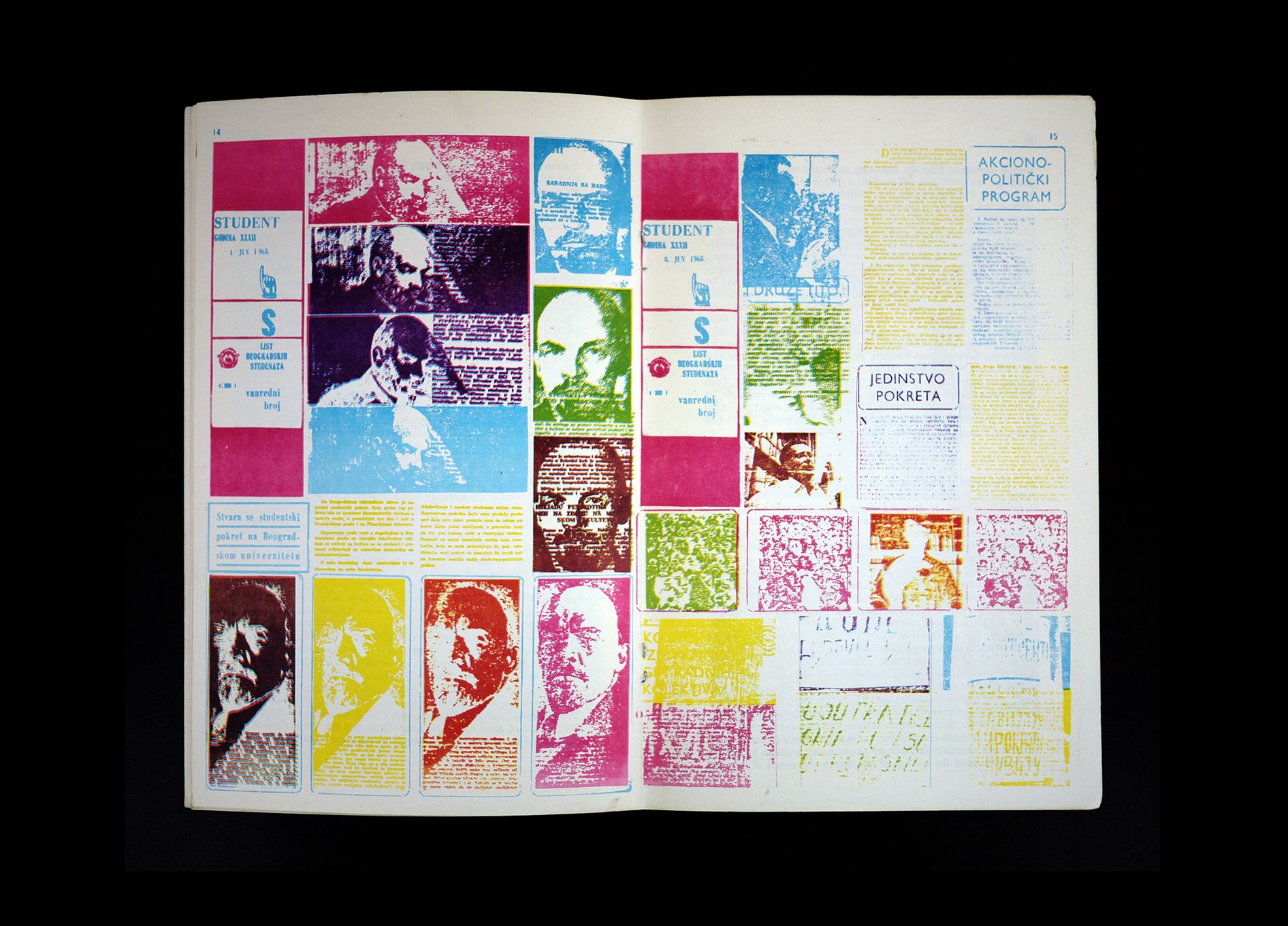
During his last year in Belgrade, while still a student at the Law Faculty, Fredy was also a member of an economic planning commission hired by the regional administration in Kosmet. The task of the commission was to propose a program for development. Samardžija was head of this commission; other Law Faculty graduate students also participated. Fredy made many trips to Priština but he did not get a close view of daily life in the region nor did he get acquainted with non-administrative Albanian residents, since most of his time in Priština was spent in offices.
Fredy found this “job” (for which he was well paid) interesting but not particularly satisfying. He realized that the commission was concerned mainly with words, abstractions, and that the situation of Kosmet’s population did not change as a result of his and his colleagues’ proposals. A few years later Fredy would criticize the legitimacy of planning commissions as such.
Most of Fredy’s fellow students were preparing for a career in the Yugoslav bureaucracy and had little interest in initiating changes in economic policies. One friend (who was not a participant in the Kosmet commission) was already employed by a Novi Sad enterprise; he had pursued graduate studies at the request of his superiors. Six months after his graduation we visited Miša in his new office. Except for the handsome furniture surrounding our friend, the room was empty. As we drank the Turkish coffee brought to us by the woman hired by the enterprise to make and serve coffee, we asked Miša to tell us about his job responsibilities. With only a trace of sheepishness, he explained that as yet his duties were undefined; he assured us, however, that before the end of the year the enterprise directors would undoubtedly assign him some projects. When we left, he took the newspaper from a desk drawer and resumed his on-the-job activity.
The experiences of Velimir Morača gave us a more somber view of Yugoslav reality. Although at least one of his close relatives was a famous World War II partisan, the young Morača’s views concerning Yugoslavia’s break with the Soviet Union (in 1948) brought him prison sentences totaling eight year. During his incarceration, he read all of Marx’s and Lenin’s works and exercised his photographic memory on these and other texts. In the mid-1960s Morača was out of prison. He lived and worked in Subotica, but commuted to Belgrade to study at the Economics Faculty.
This ex-political prisoner who was trying to understand the society in which he lived was the model Fredy took for Yarostan in Letters of Insurgents. The disorientation Yarostan described inhis letters to Sophia was all too familiar to Morača. The experiences of Yarostan’s daughter Vesna closely follow the history of Morača’s daughter of the same name. This intelligent and patriotic ten-year-old was confused by the ambiguous position of her father: what could he have done to warrant his being jailed by the authorities of a country based on such admirable principles? The real Vesna’s death occurred after we had left Yugoslavia so Fredy’s depiction of her death in Letters was hypothetical. Morača himself was rearrested in the 1970s and died in prison. This friend’s history — especially the tragic events which occurred after we left the country — played a great part in determining Fredy’s over-all estimation of the Yugoslav system. Morača’s uncompromising nature, his commitment to economic equality and his outspoken critiques were intolerable to the authorities. With absolute clarity, Fredy saw in Morača the individual destroyed by the State.
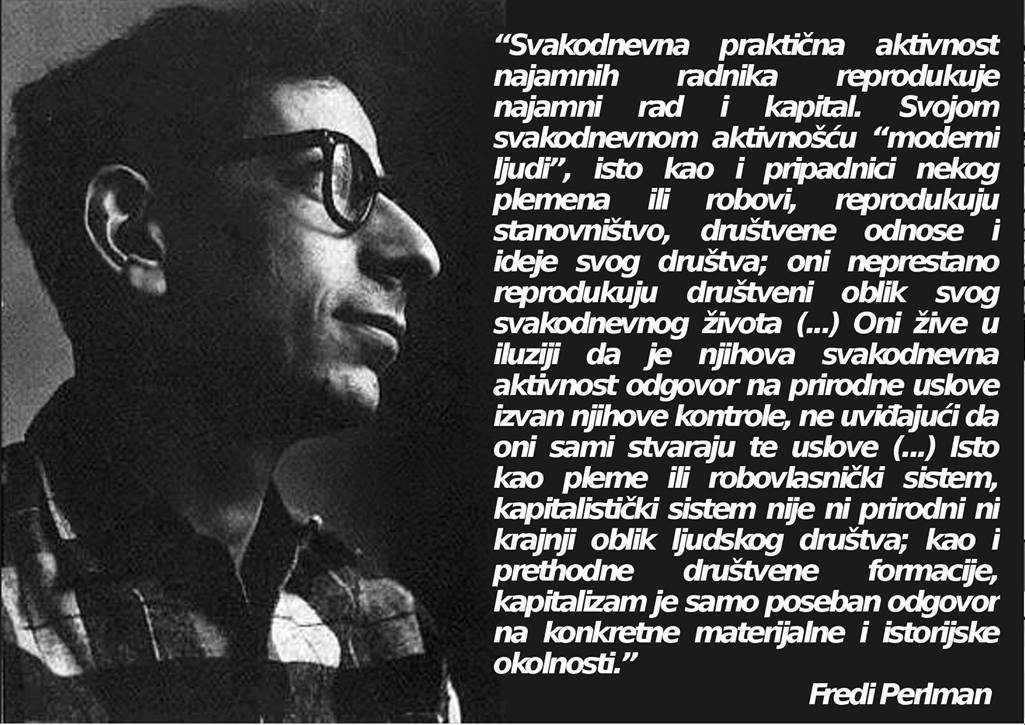
Our departure from Yugoslavia in 1966 was rather precipitous, but not related to political repression. Yugoslav doctors advised me to return to the United States following an illness and surgery. Had I not been ill, it is likely we would have remained another year in Belgrade. But contestations and anti-war actions made the U.S. seem more interesting than it had four years earlier, and it is probable that we would have returned soon after Fredy finished his studies at the University of Belgrade. We had been welcomed and appreciated in Belgrade and when, after a three-year stay, we bid farewell to our friends, activities, the city itself, we already felt nostalgia and loss.
From: Lorraine Perlman, Having Little, Being Much: A Chronicle of Fredy Perlman’s Fifty Years. Detroit, Michigan: Black & Red, 1989.
